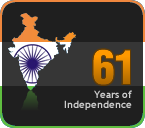In other trail of penance, Viswamitra was influenced by ego, in the episode of TriSanku. In that story, Trisanku was a king. He was rejected to enter in to heaven. He approached Viswamitra and said “Maha Muni. I was rejected from heaven. No saint helped me including Vasishta Maharishi. Please help me” “Viswamitra felt egoistic and took the challenge.
He wanted to prove himself greater than Vasishta Maharishi and others. By investing his strength of penance, he sent Trisanku to heaven. He was thrown from there. While falling down uprooted, Trisanku shouted “Viswamitra! I’m falling down, save me. You promised me to keep me in heaven.” By investing his total strength of penance, Viswamitra created another heaven and kept Trisanku there.
Later, deities solved it by accepting Trisanku in to heaven. Such that again Viswamitra got disturbed and deviated from his target of becoming Brahmashi. On this episodes, the coup makers and their supporters argue that Viswamitra had run parallel systems of this universe’s creating, continuation and destruction i.e. “సృష్టిస్థితిలయలు”. By the way, Viswamitra was rebel and enequivalent to the now-a-days terrorists who are trying to run the parallel governments.
In another trial, Viswamitra was influenced by the jealousy and ego and lost his entire energy of penance. He wanted to know Brahma Vidya i.e. Atma Gnanam and to become Brahmarshi. He consulted great and fame persons and deities like Surya Deva etc to teach him Atma Vidya. According to their guidance, finally he approached Adi Seshu, the great Snake on which God Vishnu used to lay.
He prayed Adi Seshu to teach him Atma Gnana. There was earth on Adi Seshu’s hoofs. He said, “You are looking my stage. How can I teach you by carring this heavy earth on head? If I loss balance, it may fall down.”
Viswamitra said, “Keep it aside for a while and teach me.” Adi seshu said, “Can you keep it in balance and prevent it from falling off its orbit?”
Viswamitra said “Yes”. Adi Seshu lifted the earth from his head and kept it a side. It started to fall with high velocity. With superiority complex, Viswamitra said, “I’m investing my penance energy of a moment to control the earth.” But the earth didn’t stop from falling. He said, “I’m investing my energy of one day.” No use.
He said, “I’m investing half of my penance power.” No use, He said, “I’m investing my total energy of penance to stop”. The earth had stopped for a moment i.e. second and again moving with high velocity. Viswamitra felt shy and realized how less his energy, how egoist he was and his position with respective arishadwargas.
He said, “Please forgive me. I realized my ego.” Adi Seshu smiled with generosity, stopped the earth, and kept it again on his head. On this episode, the coup makers and their supporters argue “By standing where, Viswamitra conversed like that with Adi Seshu”.
Now we know that our scientists, astronauts like Kalpana Chavla, Suneetha Williams etc converse with NASA centre, by standing in the space. This is possible with science and technology. Then, in those days, might not it possible with some other technology or technology of Atma Gnana or Brahma Gnana? Is our knowledge is full pledged to say that there won’t be knowledge other than what we know now?
In fact, these types of stories are there, all over the world, in all languages, in all countries, in all religions and in all folk stories. Can the coup makers comment on them like the comments, satires they passed on Hindu, Indian epics?
After, all these mistakes, Viswamitra concentrated on penance with balance of mind by leaving all ego & arishadwargas and achieved the darshanam i.e. appearance of Brahma Deva. When Brahma Deva gave boon to Viswamitra by calling him as Brahmarshi, he didn’t satisfy. When Vashista Brahmarshi called him as ‘Brahmarshi’, he could satisfy and then he became as the friend of the universe.
Such Vasishta and Viswamitra, when they meet each other, they respect each other. It was not a Hippocratic act like our politicians meeting.
THE STORY TOLD BY MOUNA BHASHINI’S PAYYEDA,
16 years ago




